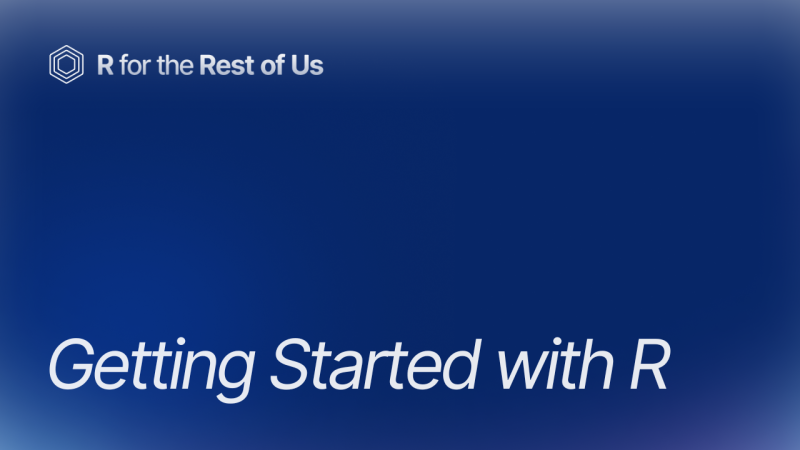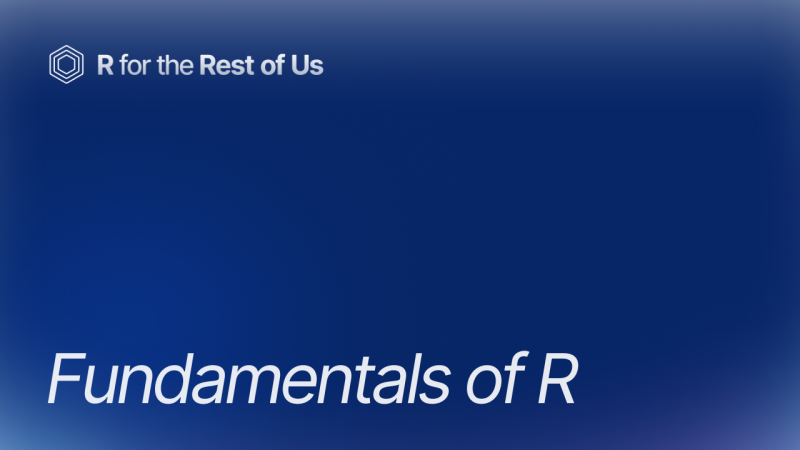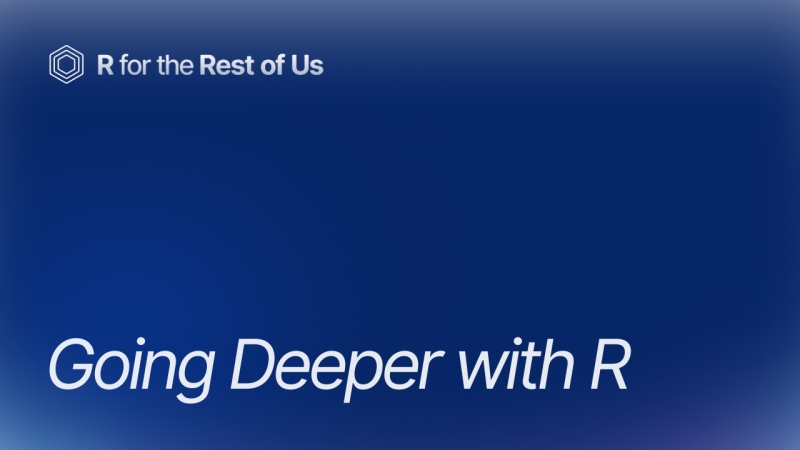Learn to use the most powerful tool for working with data.
Even if you've never coded before.

Supporting forward looking organizations




















New to R?
From "what's R?" to "I love R" in three self-paced courses.
Start here when you're just starting out.
Sign up for the newsletter
R tips and tricks straight to your inbox.
R in 3 Months
Looking for even more? R in 3 Months is a cohort-based program to help you finally learn R.
High-Quality Instruction
With R in 3 Months, you’ll get high-quality instruction that will guide you from R newbie to R expert.
Personalized Feedback
You'll work on your own code every week and get in-depth feedback.
Supportive Community
You'll be on this journey alongside a supportive community that will help you learn and keep you accountable to yourself.
Don't Take it From Us
Our learners say it best.
“I just created my very first bar chart in R, and I could not have done it without Fundamentals of R course over at R for the Rest Us.
“This is approachable and accessible. I'd recommend this program to a friend as a great way to learn enough about R to take away the fear of the difficulty of learning anything relating to code.
“thanks - helped a lot to get started with R
“For me, the course was set up very good and understandable for getting into R. I think it was very well done and serves as a good basis for starting to work with R!
“Good quick overview. I'm likely to take more courses from them in the near future. The mapping course looks very interesting.
“I started learning R and GGPLOT by relying on books (e.g., R for Data Science) and youtube. This left me with a fragmented knowledge, since few of these sources approached teaching R and GGPLOT from a holistic manner. Getting Started with R patched up many of those holes, while giving me with invaluable tips as to how to secure future advise and support.
“I feel like searching the internet for help with R is like looking for a very specific needle across a giant field of haystacks, and you are the metal detectors that get us where we need to be more quickly.
“This course is fantastic! I can't say enough good things about it. There were a few basic functions that I had already learned in R but I had always struggled with retaining the information because I'd never quite understood the grammar around how to piece functions together. David breaks down everything into really easy to understand and digestible chunks. I was asked to complete an assessment in R for a job interview only 2 days after finishing this course; I was able to complete the assessment and was asked to progress to the next stage of interviewing. With a lifetime access, this course is well worth the money. I would 100% recommend this course to a friend or colleague.
“As someone who has never coded before, this course was a lifesaver. Dr. Keyes takes you on an incredible journey as he follows a step-by-step approach to familiarise you with R and making it less intimidating to code. This course has encouraged me to continue learning R and hopefully, become proficient in it in the coming future.
“I really enjoyed this course: * The wording is super clear. * The pace feels just right. * The interface is brilliant to navigate the video through the search box or the script. Thanks for the smooth experience!
Ready to Up Your R Game?
For when you've got the foundations down and you're ready to learn more.
Let Us Handle the R
High-quality data visualization, workflow improvements, and custom packages to enable organizations to communicate more effectively and more efficiently.
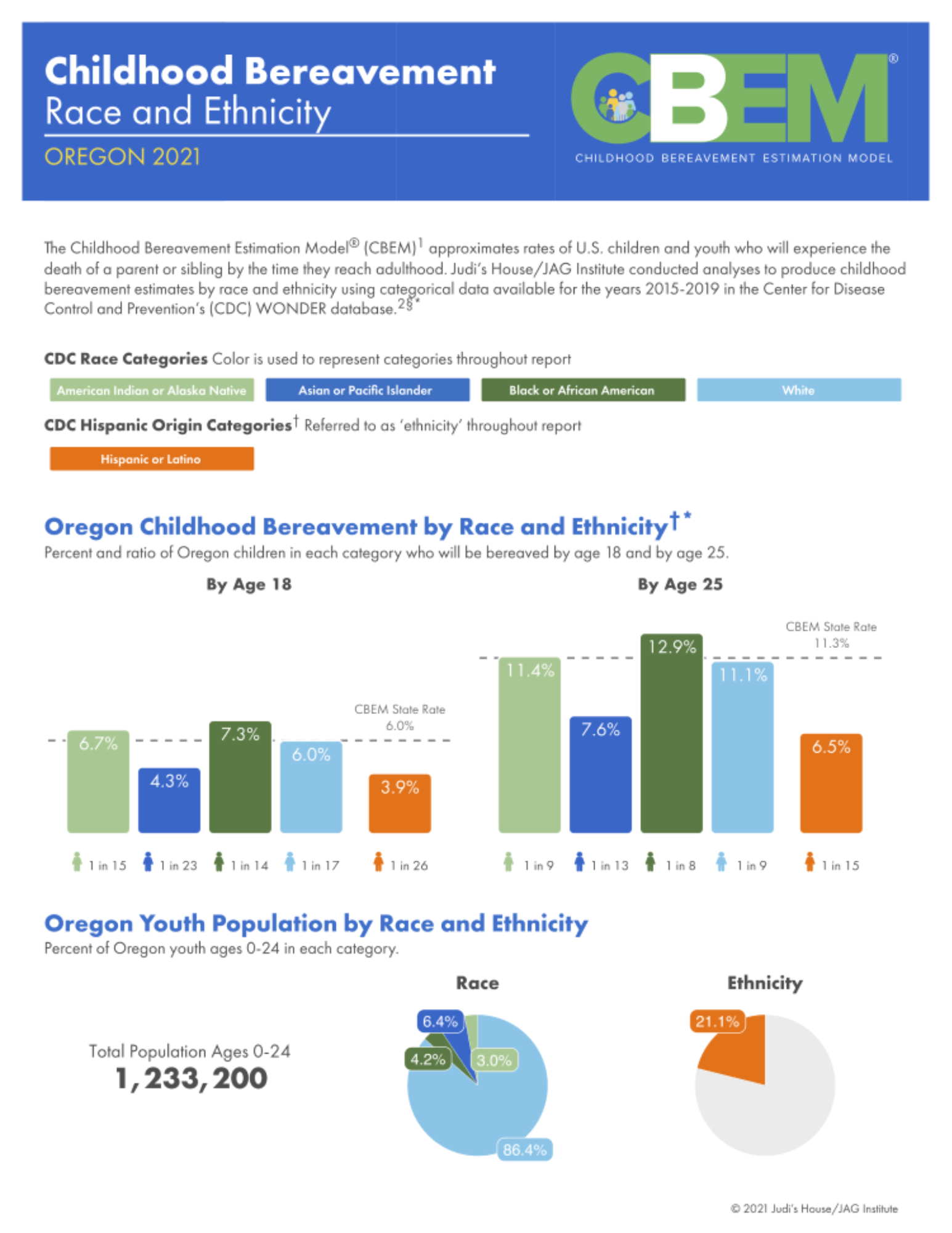
Childhood Bereavement Estimation Model Reports
Judi’s House/JAG Institute, a nonprofit in Colorado, provides support regarding childhood bereavement. In 2018, they created the Childhood Bereavement Estimation Model® (CBEM) to estimate rates of children losing a parent or sibling before adulthood. Annual CBEM reports were produced, but racial and ethnic data breakdowns were lacking until 2021. Partnering with R for the Rest of Us, they generated high-quality, easy-to-understand reports on bereavement disparities by race and ethnicity. These national and state-level reports, created using parameterized reporting and RMarkdown, help advance their vision that no child should be alone in grief.
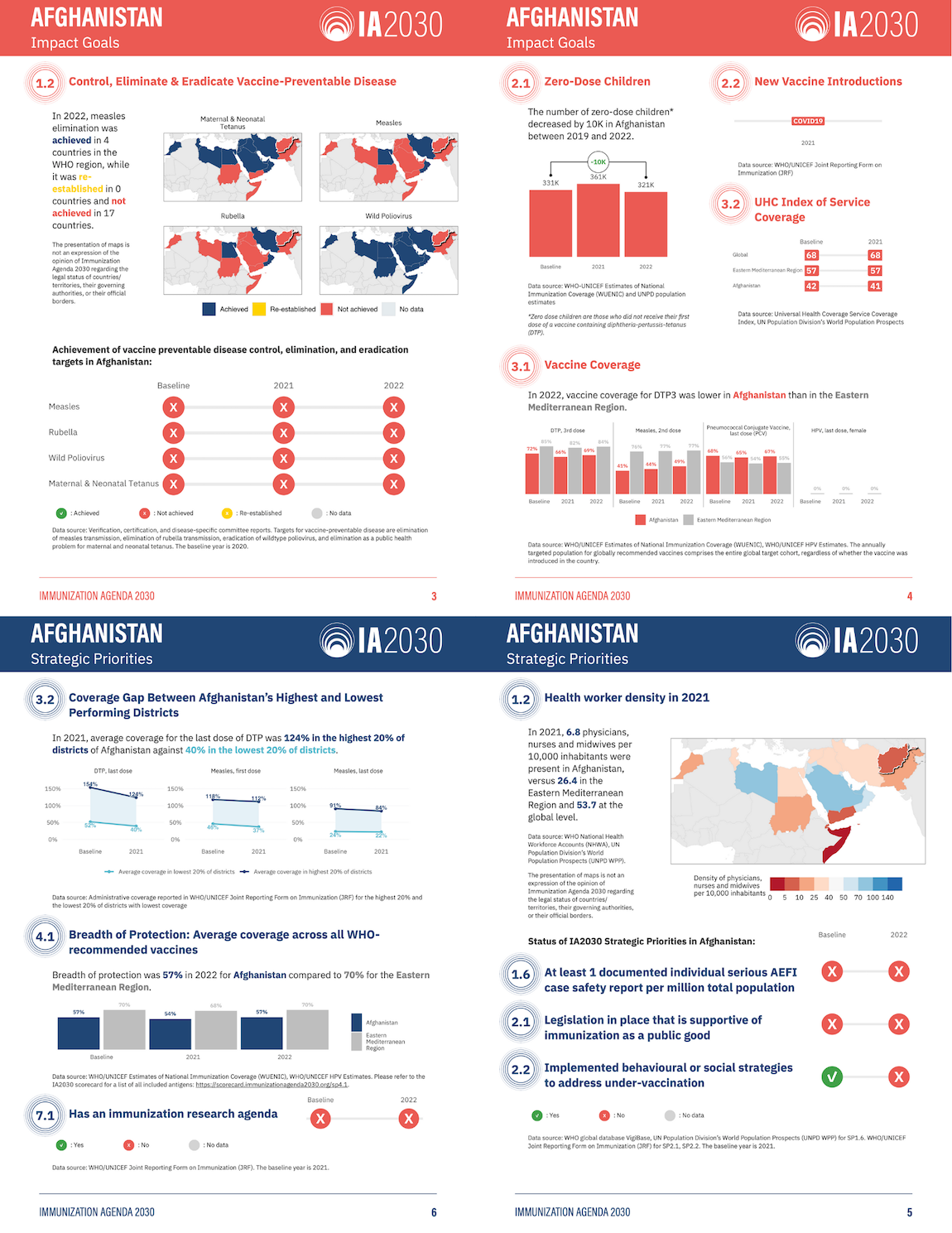
Immunization Agenda 2030 Reports
The World Health Organization's Immunization Agenda 2030 (IA2030) aims to improve global vaccine access. To better report progress, the International Vaccine Access Center at Johns Hopkins University partnered with R for the Rest of Us in 2023. They produced 72 user-friendly country-level reports in English and French, using parameterized reporting. These reports highlight individual country progress, use less technical language than previous online scorecards, and are in a printable PDF format for review.
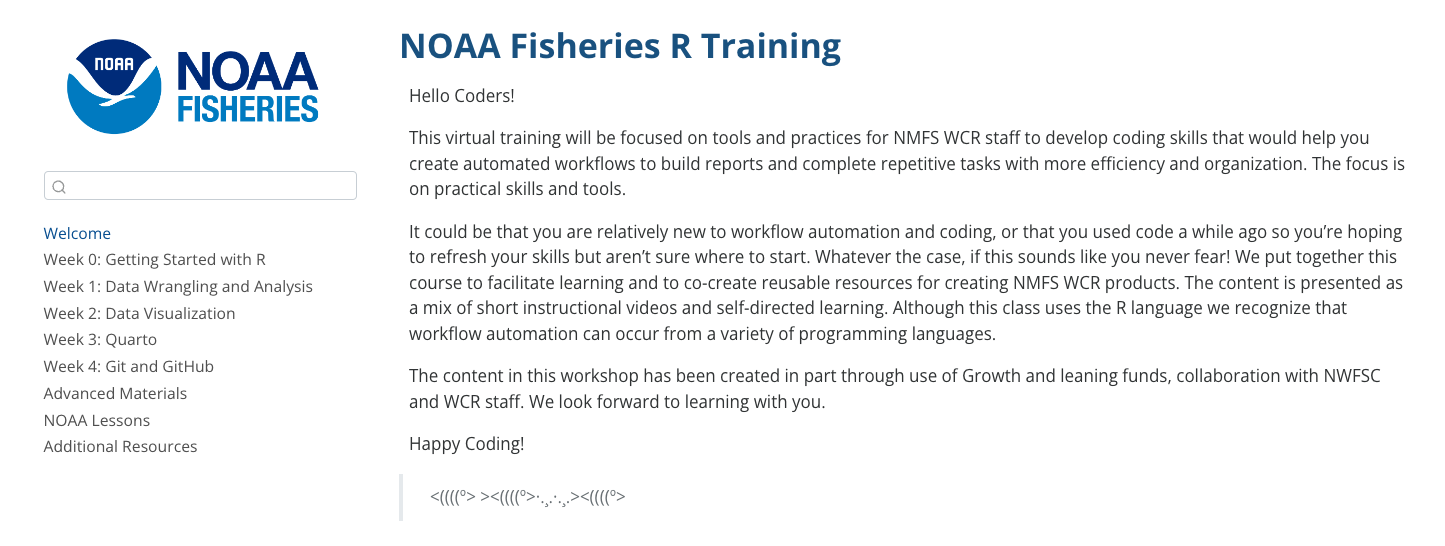
Improving R Training for NOAA Fisheries West Coast Region
Blog
Learn to use the most powerful tool for working with data.
Even if you've never coded before.

How to make heatmaps in ggplot
May 1, 2025
Heatmaps are a common way of representing data. In this blog post, I'll show you how to make your own heatmaps using ggplot. In the process, you'll learn a bit about working with the {sf} package, specifically the st_make_grid() function to make a grid, the st_intersection() function to clip the boundaries of your geography to the grid you create, and st_join() to do spatial joins. This blog post is adapted from a lesson in the Mapping with R course . If you want to learn to make heatmaps...

Use shadows in ggplot to highlight findings
April 24, 2025
In our consulting work, we make a lot of the data visualization for parameterized reporting . It’s something I spoke about in my 2024 Cascadia R Conf talk, How to Make a Thousand Plots Look Good: Data Viz Tips for Parameterized Reporting . One example I gave in this talk came from our work with the Johns Hopkins International Vaccine Access Center and the World Health Organization . In this project, we made reports for the Immunization Agenda 2030 project, which tracks the progress countries...

Create your own custom {ggplot2} theme
April 3, 2025
Creating custom themes in {ggplot2} lets you elevate your data visualizations from standard to standout. Whether you’re aiming for a polished, brand-consistent look for your organization or a unique aesthetic that reflects your personal style, a custom theme function makes it easy to apply your design to all figures with a single line of code. In this tutorial, we’ll cover: the essentials of the powerful ggplot2::theme() function, including how to adjust fonts, colors, sizing, and spacing;...
